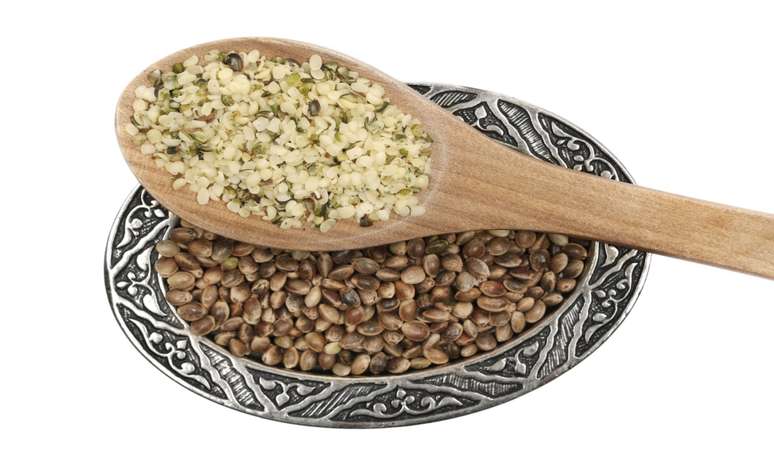Rich in vitamins and proteins, hemp seeds are considered a superfood due to their positive impact on the body.
Hemp is a variety of the Cannabis sativa plant closely associated with the textile industry. However, its characteristics are also advantageous from a nutritional point of view, especially for the composition of the seeds that provide numerous health benefits.
Disease Prevention
Rich in essential fatty acids, hemp seeds contribute to the proper functioning of the brain and heart. Therefore, they help control cholesterol levels and prevent cardiovascular diseases.
“The main nutrients studied from Cannabis Sativa L., commonly known as hemp, are essential fatty acids (omega 3 and 6), macronutrient proteins, micronutrients such as vitamin E (tocopherol), some B-complex vitamins (B1, B3, B5) and minerals (phosphorus, magnesium, manganese, iron, potassium and zinc),” explains Priscila Izidio, nutritionist and researcher in endocannabinoid nutrition.
Protein explosion
Furthermore, one of the benefits of hemp protein is its richness in branched chain amino acids (BCAAs), which are essential for building muscle and quickly recovering after exercise. These amino acids are essential for those who exercise and maintain healthy muscles, making hemp a complete source of plant-based protein.
“Hemp seeds are among the best sources of plant-based protein, surpassing most other common plant-based sources in terms of protein content per serving. Only soybeans have slightly more protein. Additionally, the protein in hemp seeds is complete, providing all the essential amino acids, making them a great option for supplementing vegetarian and vegan diets,” Izidio points out.
Other benefits
However, hemp does not only stand out for its proteins and healthy fats: it is an excellent source of vitamin E, known for its antioxidant properties, and B vitamins, essential for the proper functioning of the nervous system and energy production.
The leaves of the plant also contain vital minerals such as iron, magnesium and phosphorus, which are important for healthy bones, teeth and blood.
“Vitamins and minerals do not work in isolation. Their main benefits include antioxidant effects, support for muscle and nerve function, strengthening the immune system and promoting a healthy gut microbiome, and stabilizing blood sugar,” adds the nutritionist.
How to consume hemp
There are several ways to consume hemp, making it easy to incorporate its benefits into your diet. The seeds can be consumed shelled, like nuts, or as a pressed vegetable oil, similar to olive oil.
Grinding the seeds produces hemp flour and protein, a nutritious powder with high protein content. Depending on the processing method, the protein content can range from 30% to 80%, making it a rich source of nutrition.
For athletes seeking natural muscle development and for people who want to maintain a protein and vitamin balance, hemp protein is an excellent choice. Classic green hemp protein, obtained from pressed and shelled seeds, offers a lot of fiber and chlorophyll, with a grassy flavor. White hemp protein, obtained from shelled seeds, has a more neutral flavor and contains up to 80% protein.
Source: Terra
Ben Stock is a lifestyle journalist and author at Gossipify. He writes about topics such as health, wellness, travel, food and home decor. He provides practical advice and inspiration to improve well-being, keeps readers up to date with latest lifestyle news and trends, known for his engaging writing style, in-depth analysis and unique perspectives.








